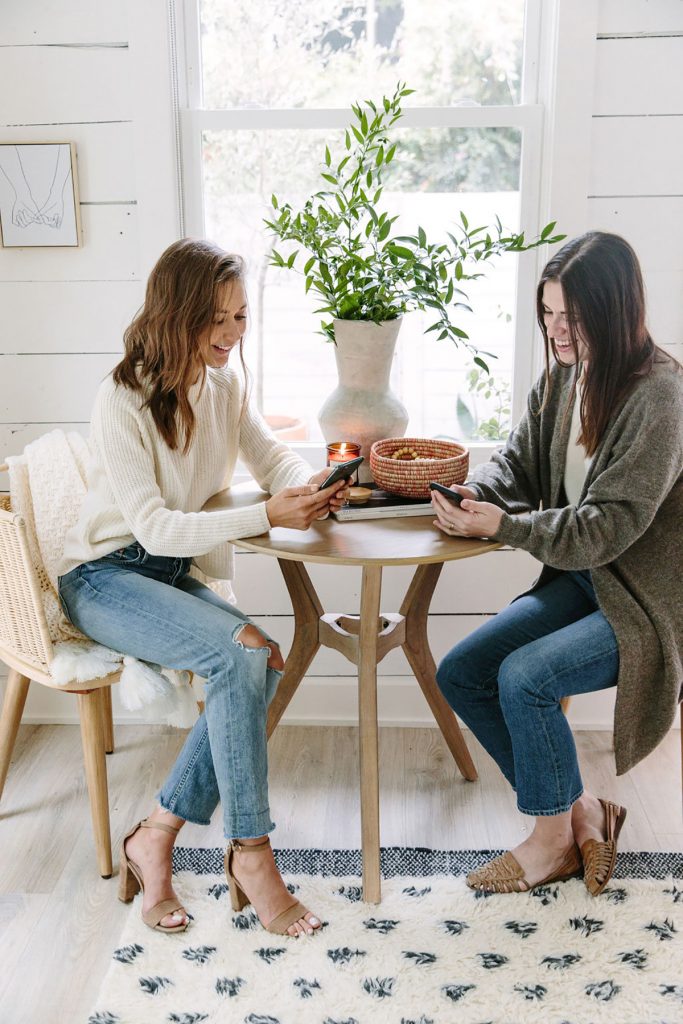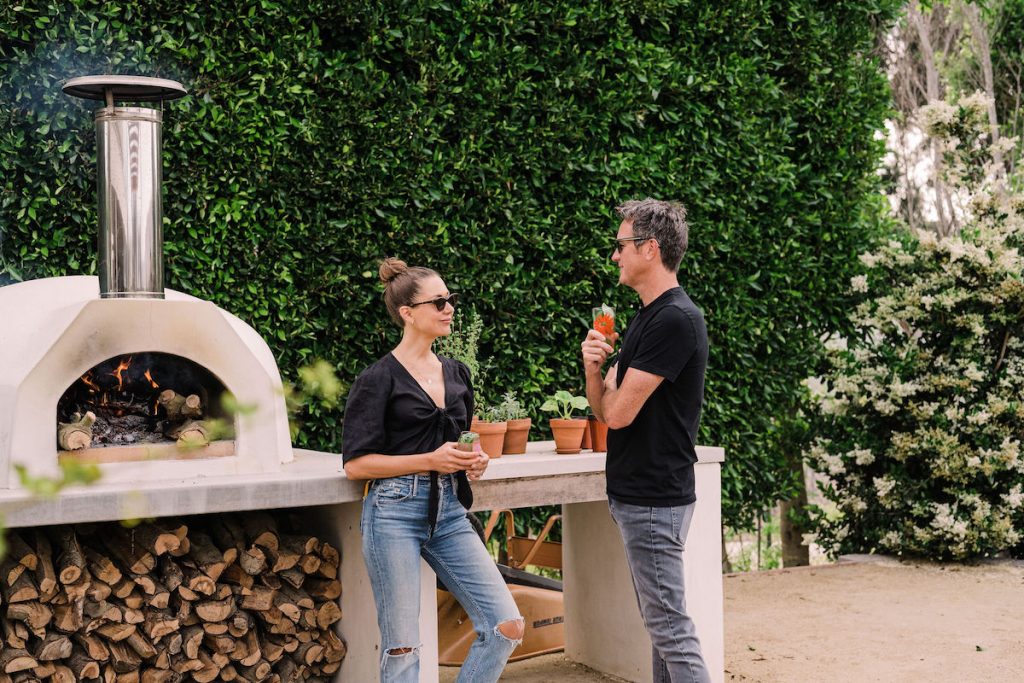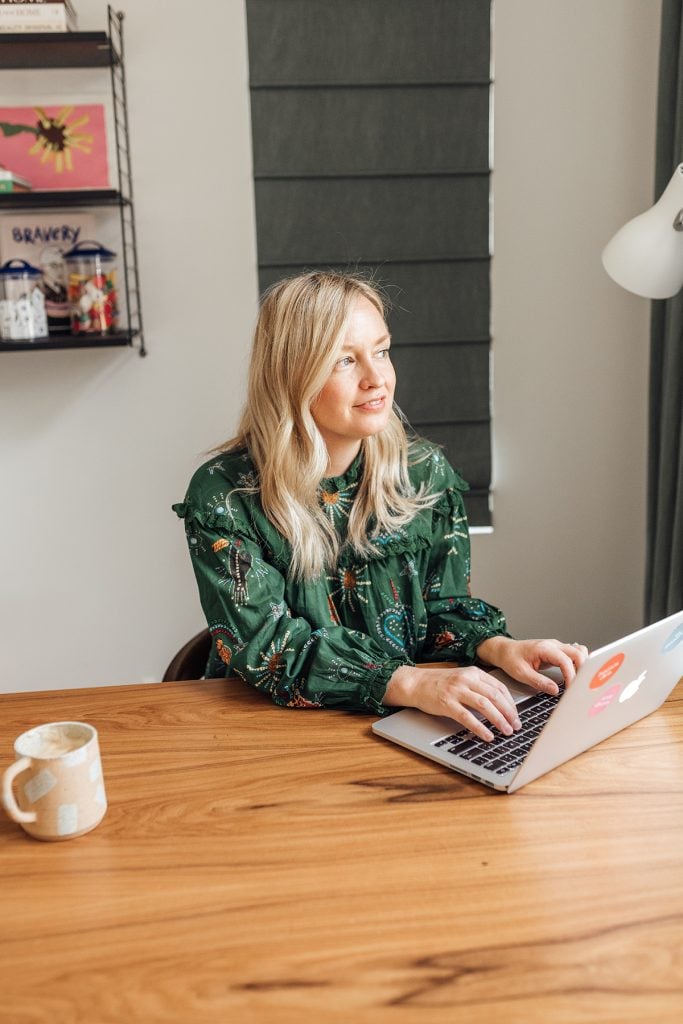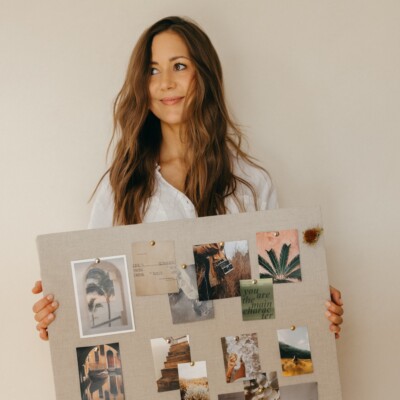Show of hands for those who value great communication, transparency, and being direct and honest. I’ll go out on a limb and guess that all of you would say yes. Now, keep that hand up if you’re great at all of those things you value: communication, transparency, and honesty. Is your hand still up? Anytime someone poses that question in a group setting, more than half of the group slowly brings their hand down, and looks around with that look of “ugh, guilty.” It’s normal. Tough conversations are exactly that—tough to have—and there are so many factors contributing to making them tough: ego, not wanting to hurt feelings, insecurity, limiting beliefs, lack of confidence, and the list goes on.
While I’m no expert in the field of tough conversations and certainly have made many mistakes in either avoiding them, or coming to the conversation in a way I wasn’t proud of in the past, I do pride myself in being able to have them, and often times it’s a recurring piece of advice my friends ask me for.
With the help of therapy, many Dare to Lead podcast listens from Brené Brown, and simply having the tough conversations, here are five recent scenarios I’ve been in, and how I’ve handled them.


Friendship
The Scenario: Within the past year, I felt a bit disconnected with a dear friend. For whatever the reasons may be, I just knew it didn’t feel good and I didn’t want to lose the friendship. When we went to lunch, I simply said, “I feel like we might be drifting apart right now, I don’t know if that’s true, but I value our friendship and want to make sure we have some space to talk through anything to help strengthen it. How are you feeling?”
My heart raced the entire time. I had so many scenarios running through my head that are too long to list. The key to this conversation was staying in curiosity and learning how she was feeling vs. judgement.
I love that she asked, “Do you have any specific examples that led you to feel this way?” In my response, I didn’t point fingers, but rather shared how I felt in the moment. That allowed us to unlock the deeper concerns and have an open convo.
In the end, we both felt a little disconnected but for no particular reason other than life, kids, and a pandemic, and committed to re-prioritizing our time and investment into each other’s lives. We got there by saying, “You’re an important person in my life and I want to invest more time into this friendship, this is what it looks like…”
We essentially redefined our friendship, which after 10+ years makes complete sense as we’re both growing and evolving as humans.
The Lesson: Stay curious, listen to the other person’s responses, and don’t judge those responses. Their truth is their experience, and the goal is to build the next step or chapter. No one was trying to win or one-up the other here, we both came from a place of wanting to understand each other’s feelings and to support one another into the next chapter.


Romantic Relationships
I could dedicate an entire article to tough conversations in dating, and mostly because this is where I fail the most, yet totally go for it.
The Scenario: I was in a new-ish (six months) relationship and reached the point where I wasn’t having fun anymore, and the relationship felt very one-sided in a lot of ways. In this particular scenario, I do wish I would’ve spoken up a bit sooner on how I was feeling, to try and work on it, but didn’t, which is one thing I’m still learning. Around the six-month mark, I realized the relationship wasn’t for me but I had a very hard time breaking it off because he was a really nice guy, and yep, you guessed it, I didn’t want to hurt his feelings. With the help of my therapist, I approached the conversation thinking about how I wanted to feel and how I wanted him to (hopefully) feel and went into it very kind. I didn’t go into it wanting to salvage it, I knew it wasn’t for me, but we do run in a similar industry circle and I care about ensuring it ended in kindness.
I said, “I realize this might come as a surprise because I haven’t used my voice to share this with you yet, which is a big learning for me. I’ve appreciated our time together, though, I’m looking for more out of a relationship. I still want to support you and your work and respect what you’re doing, if you’re okay with that.” While he was a little surprised, he wasn’t totally caught off guard. We both shared a few compliments and have remained friendly since that moment.
The Lesson: When you know you don’t want to salvage the relationship, I don’t think it’s necessary to point fingers and offer up scenarios of where it went wrong—especially if you haven’t addressed it in the past. It was really important for me to acknowledge that I didn’t use my voice or bring anything up to try and work on it—to me, that is transparency, honesty, and vulnerability in admitting I was wrong.


Workplace
In every job and role that I’ve had, I’ve always addressed a raise in salary or rate. In fact, I see it less as a tough conversation and more for advocating for my work, and I want every single person to feel comfortable and confident to do it as most are underpaid and/or not even aware of their worth. I’m grateful to now be in circles that are transparent about salaries—I swear once you start learning what others are making, you’ll have no problem asking for more.
In my opinion, the toughest conversations in the workplace are those with colleagues or managers that you work with on a consistent basis, especially if you’re in an in-office environment vs. remote. I cannot stress enough the importance of not delaying these vital conversations as the longer you wait, the more your work and mental health has the potential to take a big hit.
The Scenario: On a work trip where I was hosting a large event, I felt something was off with one of my colleagues. Typically they’d be warm, welcoming, and carving out the proper time to hang, but I experienced them completely the opposite. It was a rather quick trip and one where we didn’t have a lot of alone time, so it didn’t feel right to say anything in the moment. Plus, I was still trying to decide how I felt about it. Every emotion was present: confused, hurt, upset, annoyed, and even questioning what I might’ve done to make them feel that way. When I got home, the feeling was still present, so exactly a week later, I asked for a call.
Knowing our working relationship was great—and they are the type that values vulnerability and bold communication—I simply said, “I know you are the type that values vulnerability and open communication, so I wanted to talk about our recent event. I felt like something was off, and you weren’t your usual self are you okay?” I decided to remove myself from this one initially and find out what was going on with them if anything. They responded that they weren’t happy in their role, and shared it was no excuse to project that onto me, and felt awful that it impacted me the way that it did.
We decided together we wanted to carve out monthly time to connect and get out of the work-mode grind, and I’m happy to report that this has helped immensely. Sometimes it takes removing the “work” in the workplace to truly get to know one another; though it takes both parties to be willing to carve out time for that.
The Learning: Removing ourselves from the narrative ie: “You did this to me,” allows the other person to potentially open up more vs. come from a place of defensiveness or shame. No doubt my colleague knew the impact of the behavior because I opened up. I imagine the conversation would’ve gone a completely different direction if I opened it with, “You were really rude to me.”
In closing…
No matter the scenario, it’s clear that curiosity, owning mistakes, and not judging reactions or responses is key to navigating tough relationships. I’m grateful that each scenario has also led to robust and open conversations, and I give credit to the approach. But I’m curious readers, how do you approach tough conversations? What have you learned? Sound out in the comments below!






